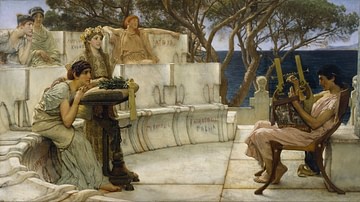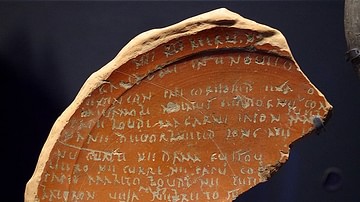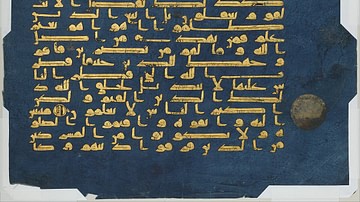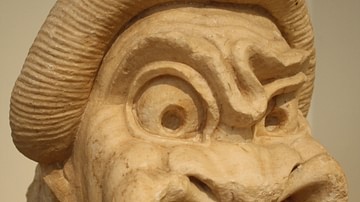Search
Search Results

Collection
Great Ancient Greek Poets
The poets of ancient Greece are among the most famous in the world and established many of the forms still used by artists today. From the epic poetry of Homer to the more intimate works of Sappho of Lesbos, ancient Greek poetry has inspired...

Definition
Etruscan Civilization
The Etruscan civilization flourished in central Italy between the 8th and 3rd century BCE. The culture was renowned in antiquity for its rich mineral resources and as a major Mediterranean trading power. Much of its culture and even history...

Article
Famous Grammarians & Poets of the Byzantine Empire
In the wake of the downfall of the Western Roman Empire and the intellectual collapse of Athens, Byzantine scholars engaged in preserving the Classical Greek language and its literature. Thus they became the guardians of a vanished culture...

Article
A Linguistical Analysis of Ancient Celtic Languages
The Celtic languages form a branch of the Indo-European (IE) language family. They derive from Proto-Celtic and are divided into Continental Celtic languages (Lepontic, Gaulish, Galatian, Noric, Celtiberian, Gallaecian) and Insular Celtic...

Definition
Sumer
Sumer was the southernmost region of ancient Mesopotamia (modern-day Iraq and Kuwait) which is generally considered the cradle of civilization. The name comes from Akkadian, the language of the north of Mesopotamia, and means “land of the...

Definition
Uruk
Uruk was one of the most important cities (at one time, the most important) in ancient Mesopotamia. According to the Sumerian King List, it was founded by King Enmerkar c. 4500 BCE. Uruk is best known as the birthplace of writing c. 3200...

Definition
Quran
The Quran (also written Qur’an or Koran), revealed in the 7th century, is the sacred book of Islam, following in the tradition of the Abrahamic faiths, with the Torah as the sacred book of Judaism and the New Testament as the sacred book...

Image
Greek Expansion in the Ancient Aegean
A map illustrating the trends and directions of the expansion of the ancient Geeks across the Aegean during the so-called Greek Dark Ages in the wake of the collapse of the Mycenaean civilization. During the 1100s BCE, fueled by a variety...

Image
Ancient Greek Kithara
A reconstruction of the ancient Greek stringed instrument. It was associated with the god Apollo, regarded as the most gifted player of the instument and patron of musicians. (Museum of Ancient Greek Musical Instruments, Katakolon, Greece).

Image
Greek Marble Comedy Mask
A stone version of a mask used in Greek comic theatre. Contorted features were typical in theatre masks and this one represents a slave. Pentellic marble (2nd century BCE). Found in Athens near the Dipylon Gate (National Archaeological Museum...